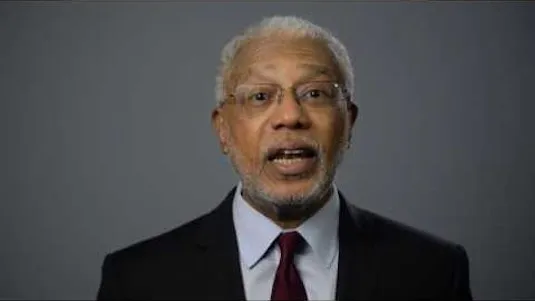
Ethical Leadership: Character Civility and Community 
Ethical leadership is the practice of embodying the values and traditions of a community. Leaders with strong ethical character demonstrate civility and foster a sense of community. They use their wisdom and experience to guide their decisions and actions. ▼
ADVERTISEMENT
Course Feature
![]() Cost:
Cost:
Free
![]() Provider:
Provider:
Edx
![]() Certificate:
Certificate:
No Information
![]() Language:
Language:
English
![]() Start Date:
Start Date:
Self paced
Course Overview
❗The content presented here is sourced directly from Edx platform. For comprehensive course details, including enrollment information, simply click on the 'Go to class' link on our website.
Updated in [March 06th, 2023]
This course, Ethical Leadership: Character Civility and Community, provides theoretical and practical approaches to the development of character, civility and community for leaders and emerging leaders in education, business, nonprofit, academic, religious, and other professions. The course examines the personal, public and spiritual dimensions of leadership within the context that Walter Earl Fluker calls “the intersection of lifeworlds and systems”; and outlines principles and practices of ethical leadership from a diverse field of leadership theories. Theorists and Leadership Video Interviewees include Congressman John Lewis, Ambassador Andrew Young, Dr. Jochen Fried, Dr. Walter E. Massey, Chandra Taylor-Smith, Nicole Robinson, Caren Yanis, Biographer Evan Thomas, and Harvard University Business, Kennedy and Education School Professors Max Bazerman, Howard Gardner, Bill George, David Gergen, Ronald Heifetz and Barbara Kellerman. BU Leadership Video Interviewees include President Robert A. Brown, Provost Jean Morrison, and Deans Coleman, Moore, Cudd, Elmore, Freeman, Galea and Najam. Through video exercises led by Professor Fluker, discussion, journaling and assessments, as well as a 5-7 page final project, course participants will develop an Ethical Leadership Toolkit.
[Applications]
Upon completion of this course, participants will be able to apply the principles and practices of ethical leadership to their own contexts. They will be able to identify and articulate their own personal narrative and how it intersects with social and historical contexts. They will be able to develop an Ethical Leadership Toolkit to address their area of concern, and will have the skills to lead with character, civility and community.
[Career Paths]
1. Ethical Leadership Consultant: Ethical leadership consultants help organizations develop ethical leadership practices and strategies. They provide guidance on how to create a culture of ethical behavior and how to ensure that ethical standards are met. They also help organizations develop policies and procedures to ensure that ethical standards are maintained. As ethical leadership becomes increasingly important in the business world, the demand for ethical leadership consultants is expected to grow.
2. Ethical Leadership Trainer: Ethical leadership trainers help organizations develop and implement ethical leadership training programs. They provide guidance on how to create a culture of ethical behavior and how to ensure that ethical standards are met. They also help organizations develop policies and procedures to ensure that ethical standards are maintained. As ethical leadership becomes increasingly important in the business world, the demand for ethical leadership trainers is expected to grow.
3. Ethical Leadership Coach: Ethical leadership coaches help individuals and teams develop their ethical leadership skills. They provide guidance on how to create a culture of ethical behavior and how to ensure that ethical standards are met. They also help individuals and teams develop policies and procedures to ensure that ethical standards are maintained. As ethical leadership becomes increasingly important in the business world, the demand for ethical leadership coaches is expected to grow.
4. Ethical Leadership Educator: Ethical leadership educators help organizations and individuals develop their ethical leadership skills. They provide guidance on how to create a culture of ethical behavior and how to ensure that ethical standards are met. They also help organizations and individuals develop policies and procedures to ensure that ethical standards are maintained. As ethical leadership becomes increasingly important in the business world, the demand for ethical leadership educators is expected to grow.
[Education Paths]
1. Bachelor of Arts in Leadership: This degree program focuses on developing the skills and knowledge necessary to become an effective leader in any field. It covers topics such as communication, problem-solving, decision-making, and team-building. It also explores ethical leadership, character development, and civility in the workplace. This degree is becoming increasingly popular as organizations recognize the importance of ethical leadership in creating a successful and productive work environment.
2. Master of Science in Leadership: This degree program is designed to provide students with the advanced knowledge and skills needed to become successful leaders in their chosen field. It covers topics such as organizational behavior, strategic planning, and change management. It also explores ethical leadership, character development, and civility in the workplace. This degree is becoming increasingly popular as organizations recognize the importance of ethical leadership in creating a successful and productive work environment.
3. Doctor of Philosophy in Leadership: This degree program is designed to provide students with the highest level of knowledge and skills needed to become successful leaders in their chosen field. It covers topics such as organizational behavior, strategic planning, and change management. It also explores ethical leadership, character development, and civility in the workplace. This degree is becoming increasingly popular as organizations recognize the importance of ethical leadership in creating a successful and productive work environment.
4. Master of Business Administration in Leadership: This degree program is designed to provide students with the advanced knowledge and skills needed to become successful leaders in the business world. It covers topics such as organizational behavior, strategic planning, and change management. It also explores ethical leadership, character development, and civility in the workplace. This degree is becoming increasingly popular as organizations recognize the importance of ethical leadership in creating a successful and productive work environment.
Course Provider

Provider Edx's Stats at AZClass
Ethical leadership is the practice of embodying community values and traditions. Leaders with strong moral qualities demonstrate civility and foster a sense of community. They use their wisdom and experience to guide their decisions and actions. This is an online course that provides learners with theoretical and practical approaches to developing character, civilization, and community for leaders and emerging leaders in a variety of occupations. Through video exercises, discussions, journals, and assessments, learners will develop an understanding of ethical leadership and its importance in today's world. They will also learn how to apply ethical leadership principles to their areas of concern such as economic disparity, racism, LBGTQ issues, homelessness, hunger, violence, environmental issues and global citizenship.
Discussion and Reviews
0.0 (Based on 0 reviews)
Explore Similar Online Courses

Free Basic Digital Marketing Course

Create WordPress Website To Sell Digital Products NO CODING!

Python for Informatics: Exploring Information

Social Network Analysis

Introduction to Systematic Review and Meta-Analysis

The Analytics Edge

DCO042 - Python For Informatics

Causal Diagrams: Draw Your Assumptions Before Your Conclusions

Whole genome sequencing of bacterial genomes - tools and applications

Leadership Skills Mastery Vol 1: Leadership for 2019

What is Leadership?


Start your review of Ethical Leadership: Character Civility and Community